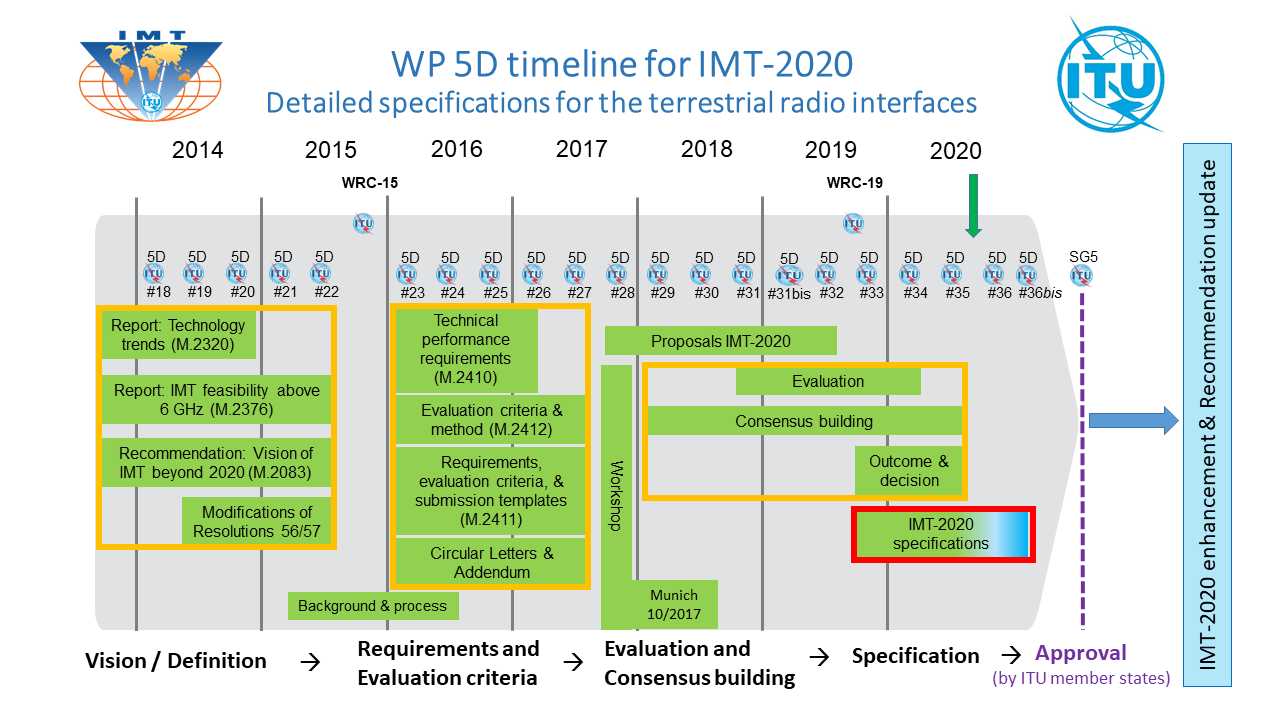The radio interfaces that will be used in full-scale commercial deployment of fifth generation (5G) mobile communication networks have achieved global validation with the successful evaluation by ITU of three new technologies that conform with the International Mobile Telecommunications 2020 (IMT-2020) vision and stringent performance requirement.
The technologies are: 3GPP 5G-SRIT and 3GPP 5G-RIT submitted by the Third Generation Partnership Project (3GPP), and 5Gi submitted by Telecommunications Standards Development Society India (TSDSI).
During the multi-year development and evaluation process by the ITU Radiocommunication Sector (ITU-R), these technologies were deemed to be sufficiently detailed to enable worldwide compatibility of operation and equipment, including roaming.
The evaluation affirmed that 5G will be the backbone of the global digital economy
The outcome of this first release of IMT-2020 supporting 5G is a set of terrestrial radio interface specifications which are incorporated into a global standard in the ITU-R Recommendation titled ‘Detailed specifications of the radio interfaces of IMT-2020.‘ This is in final approval to the 193 Member States of ITU.
“IMT-2020 specifications for the fifth generation of mobile communications (5G) will be the backbone of tomorrow’s digital economy, transforming lives and leading industry and society into the automated and intelligent world,” said Houlin Zhao, ITU Secretary-General. “5G will enable much faster data speeds, reliable connectivity and low latency to international mobile telecommunications (IMT) — all needed for our new global communications ecosystem of connected devices sending vast amounts of data via ultrafast broadband.”
Mario Maniewicz, Director of the ITU Radiocommunication Bureau, said: “The successful completion of the evaluation process and the release of this global standard is a significant milestone for the global telecommunication industry and its users. 5G technologies will further enrich the worldwide communications ecosystem, expand the range of innovative applications and support the burgeoning Internet of Things, including machine-to-machine communication.”
The evaluation of the candidate technologies was not carried out by ITU-R alone. It was a highly collaborative process with substantial input from and coordination with ITU Member States, equipment manufacturers, network operators, and involved national, regional, and international standards development organizations, partnerships, the academic community and fora, since ITU-R provides a unique global framework to discuss the capabilities of new radio technologies.
In early 2012, ITU initiated the development of “IMT for 2020 and beyond”, setting the stage for 5G research activities and in 2015 established the vision and requirements for the globalization of 5G. Under ITU’s ongoing IMT programme, ITU membership is continuing its long-standing contribution to mobile communications, facilitating its mission to be “committed to connecting the world.“
































